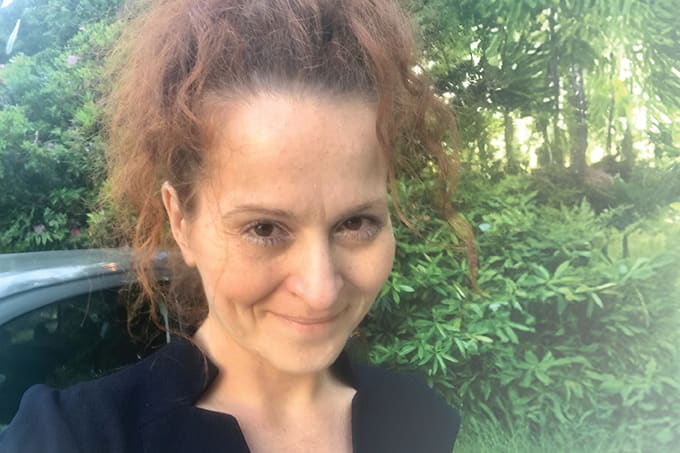Artificial intelligence (AI) has been making headlines for some time, and recently large language models (LLMs) like ChatGPT have been causing quite a stir among pathologists – myself included. Can ChatGPT be used to write notes? Will it help me write papers? Is it coming for my job?! I decided to learn as much as I could about ChatGPT and LLMs in general to discover the truth.
Firstly, I learned exactly what LLMs are: an algorithmic prediction of text trained on a large body of data. ChatGPT, for example, produces a response to a prompt by predicting the first word, then word 2 from word 1, then word 3 from words 1 and 2, and so on. LLMs are a useful tool for a large variety of uses, such as creative text generation, summarizing and outlining text, organizing data, writing code, and even gameplay.

Learnings
Secondly, I examined some of the drawbacks – which have been widely publicized. Importantly, LLMs aren’t infallible and their output must be fact-checked. Although they’re algorithms, the data they are trained on contain biases which will influence the output. Additionally, LLMs cannot access information past its training, meaning that responses can quickly become outdated. And, finally, there are limits to both the size of the prompt and the generated output.
Overall, these tools come with restrictions despite the powerful assistance they can provide to residency, and should be used with such understanding. Continuing with my research, I looked into prompt patterns, which allow you to tap into the extensive training dataset of an LLM, control the output for improving consistency, and increase information allowance in a limited prompt size. For example, I used prompt patterns to develop an educational question-to-question game about platelet disorders. There are a variety of courses available for prompt engineering on LLMs and I recommend diving into those within your budget. You might even find that you can reimburse the cost with your residency book fund.
Applications
After conducting all this research, I chose to embrace LLMs and incorporate them into my workflow, both in my residency and in my personal life. I find ChatGPT 4.0 particularly useful in writing code – so much so that I pay for a subscription! I also use ChatGPT to produce outlines of my writing so I can double check the flow and structure of a document. In my studies, ChatGPT has also helped me create several games for studying difficult material.
Additionally, I use Consensus and Elicit LLMs to perform literature searches and generate research ideas. Consensus has plugins available for use within the ChatGPT interface to search verified scientific literature. However, I particularly enjoy using Elicit, as it generates a 1–2 sentence summary of every paper it returns for your search, extracts data from uploaded PDFs, and – my personal favorite – produces a list of key concepts from the literature for any research question you ask. Did I mention it does all this for free?
In my personal life, ChatGPT is ideal for planning weekly menus and grocery lists, especially for developing new recipes that fit with our dietary restrictions. I also use another LLM called Google Bard, which generates date night ideas that cost less than $50. The training data cut-off for Google Bard is more recent, meaning that the ideas it suggests are more up-to-date than other LLMs.
Other considerations
Having said all this, I don’t use LLMs in two key areas: writing notes and papers. LLMs are still a young technology and the medicolegal framework for their use in clinical documentation is still in its infancy. With so much uncertainty and risk, I still choose to handwrite all my clinical notes. Similarly, there is a raging debate about the role of LLMs in producing scientific manuscripts. The exact guidelines vary by journal, but the overall consensus is that LLMs cannot be given authorship and their use must be disclosed. Given the overwhelming negative view of LLMs and the risk of backlash, I have decided to steer clear of this debate and write my own manuscripts.
With all this in mind, will LLMs and AI in general replace pathologists? As Toby Cornish and David McClintock state in their Critical Values article (1), this is very unlikely. However, pathologists familiar with and comfortable using AI and LLMs will almost certainly replace those who are not. AI is a powerful assistant tool for practicing pathologists, with the potential to transform the disease screening process and help with staff shortages – it even has future potential to generate clinical documentation. AI instrumentation is already in use in many core laboratories and expansion is definitely on the horizon. Indeed, some enterprise-wide electronic medical record systems are already incorporating AI to generate certain types of patient communication.
With all these potential benefits, and the almost certain inevitability of its adoption, I would urge all pathologists to become familiar with AI and LLMs during their training. Below is a short list of reasonably priced – and free – courses to get you started!
References
- Critical Values, “Why AI Won’t Replace Laboratory Professionals and Pathologists” (2023). Available at: https://criticalvalues.org/news/all/2023/07/05/why-ai-won-t-replace-laboratory-professionals-and-pathologists




